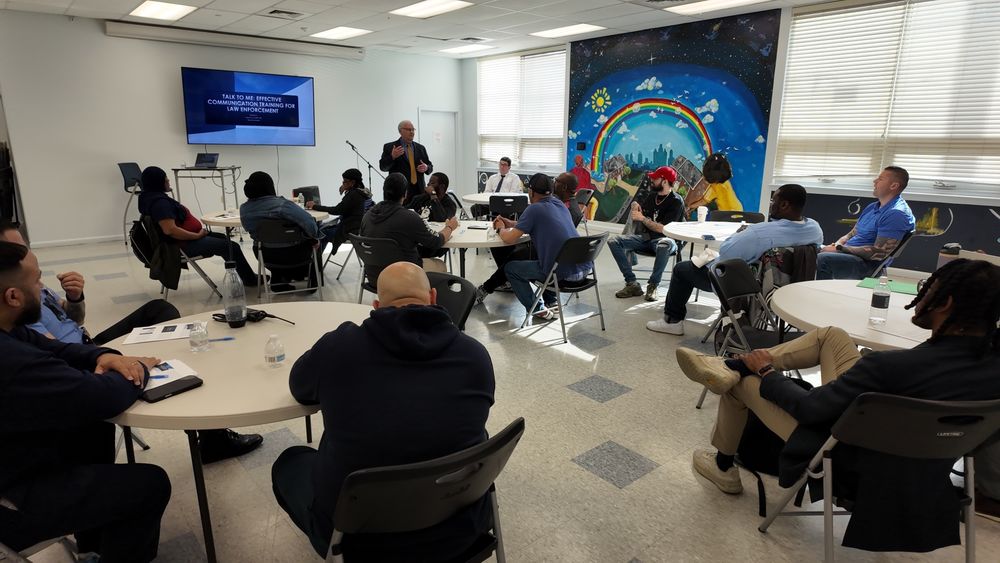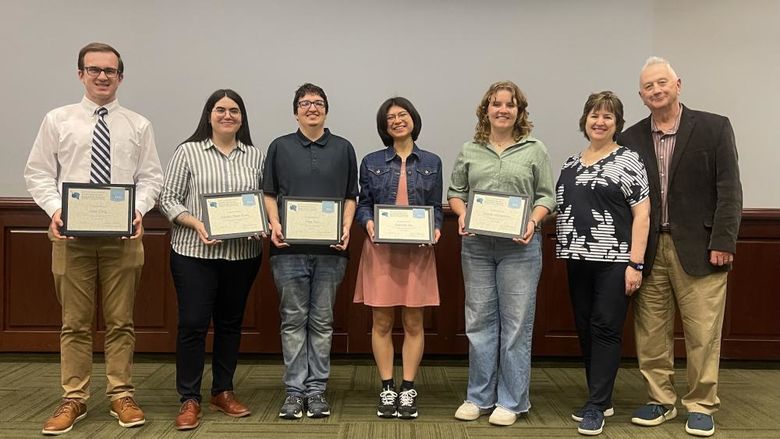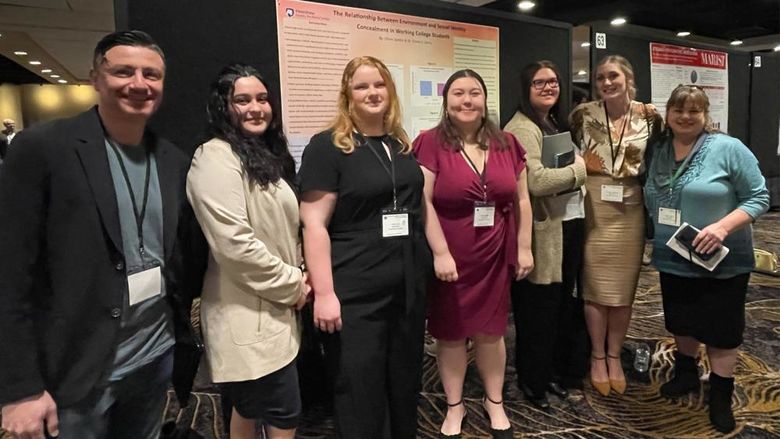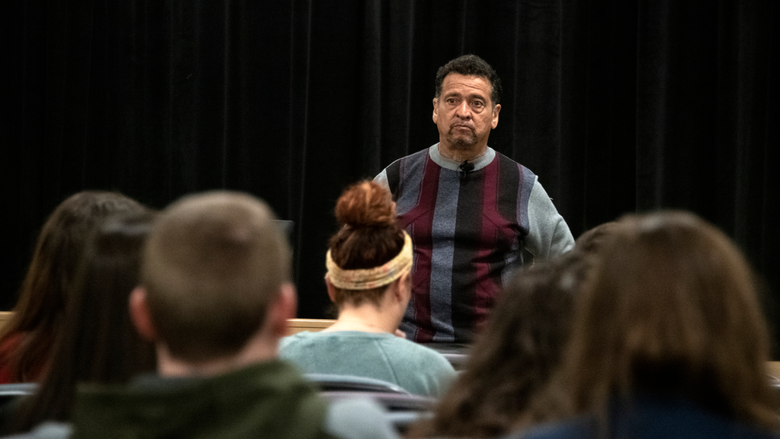
A Penn State pilot training course brought police and community members together in Philadelphia to enhance law enforcement de-escalation skills and foster community connections through effective communication and trust building.
PHILADELPHIA — A Penn State pilot course in Philadelphia is enhancing law enforcement de-escalation skills and fostering community connections through effective communication and trust building.
Instructors from the Penn State Justice and Safety Institute (JASI), which is a unit of Penn State Outreach, and other partners taught the training course, “Talk to Me: Effective Communications Skills for Law Enforcement” at the Becket Life Center.
The innovative training brought together four officers from the Philadelphia Police Department and an officer from Delaware County with nine community members from Philadelphia to work toward better communications and understanding.
The course is being developed in partnership with JASI, faculty from Penn State Fayette, including Theresa Lee, professor of psychology, and Anthony Iannamorelli, adjunct instructor of criminal justice and assistant district attorney for Westmoreland County; faculty from Penn State Abington; and scholars from Keystone Community Partnerships of Penn State, a Penn State Outreach program. The course is designed to provide law enforcement officers with de-escalation skills that can be utilized during stressful and emotional encounters and increase positive outcomes between police and communities in Pennsylvania.
Topics included wellness and resiliency tactics, how to use body-worn camera videos in court testimony and the role the nervous system plays in effective communication with an emphasis on a new term, “pre-escalation.”
“The real innovation with this JASI training is that it's more focused on ‘pre-escalation,’" said Jamison Malcolm, director of Keystone Community Partnerships. “De-escalation implies that an interaction had already escalated toward use of force. The focus of this training is on self-awareness, brain science and communication style so that officers have a better understanding of themselves and the people they are interacting with so that situations are less likely to escalate in the first place.”
JASI instructor Chuck Rapp said during the past couple of decades mandatory training hours have been heavily geared toward hard skills, such as firearm training and use of police equipment. This is often due to budgetary and time constraints.
“We have gotten away from focusing on communication, so law enforcement might not think about using their communication skills to further de-escalate a situation,” Rapp said. “This course is being developed to teach these important communication skills between law enforcement and community members that can help officers keep things in control and safe.”
Keystone Community Partnerships scholars — graduate students trained in the Keystone Community Partnerships model of community engagement — partnered to help provide qualitative research and evaluation for the program, while also working to create and cultivate relationships with community stakeholders. These connections brought together police and community members who live in or serve the same north Philadelphia neighborhood to participate in the training.
“Having these community members in the training is valuable,” Rapp said. “It is an opportunity to share information and perspectives to allow all to get a deeper understanding of policing and community norms. This adds to the knowledge of the community on both sides and brings them together. This also builds advocates for the police in the community and assists them when a critical incident occurs.”
Mel Wells is the director of One Day at a Time (ODAAT), a substance abuse recovery program in Philadelphia. With his support, eight ODAAT staff members participated in the training.
“I wholeheartedly support the University's initiative,” Wells said. “I've seen the effectiveness of such partnerships firsthand. Our organization has worked with the Philadelphia Police Department for over 42 years. My hope is that these collaborations will continue to flourish, leading to further reductions in homicide rates, robberies and other violent crimes within our community.”
Philadelphia Police Officer Julio Trujillo said the pre-escalation tactics he learned will help build relationships out on patrol.
“From an officer standpoint, it helps us bring things to a more humane situation,” Trujilo said. “A lot times we are seen as the last line of defense where we are more physical. We are trying to get away from that and let people know that we are human as well, and we go through the same things that they go through. We can express that and help build a bridge between us and them.”
Keystone Community Partnerships scholar and Penn State graduate student Emma Steely said participating as a project coordinator has helped enhance her skills as a researcher through community engagement.
“Because what are we researching for? For me, it is to better the lives of the community members in the communities in which we live,” Steely said. “It is one thing to learn about community engagement in theory, but to work to pilot a program such as this de-escalation program has been a different experience. There is a wealth of knowledge to be gained.”
The program is an example of how Keystone Community Partnerships will continue working to connect communities with Penn State research and resources to make an impact in North Philadelphia.
“The real and lasting outcome of this initiative is the community capacity developed through this collaboration,” Malcolm said. “A goal is to continue building an ongoing relationship between Penn State Outreach and this particular neighborhood in north Philadelphia to bring Penn State research and resources to address community identified priorities.”





